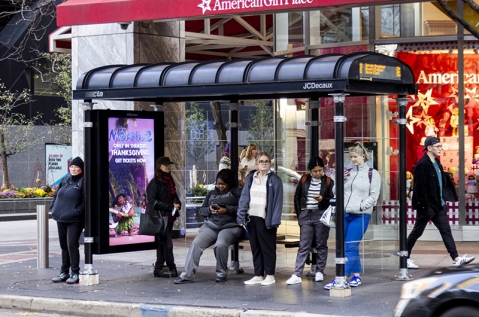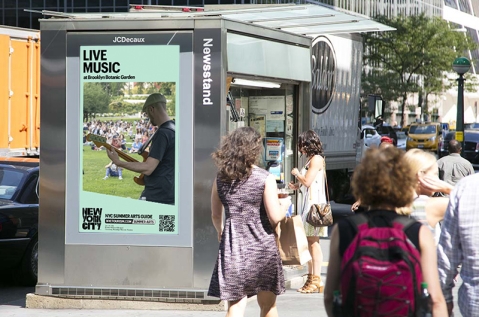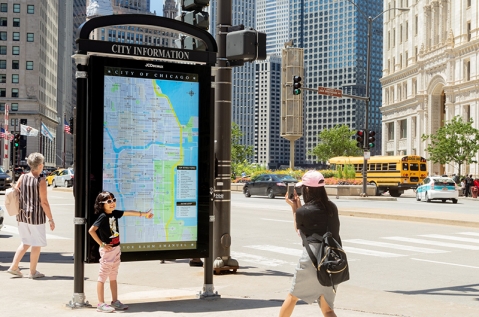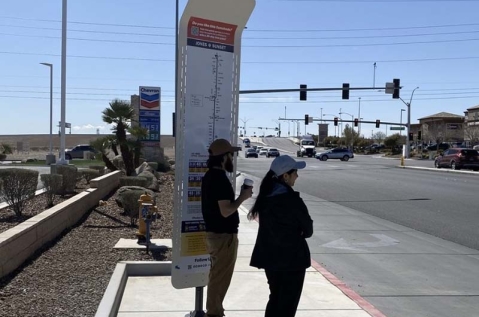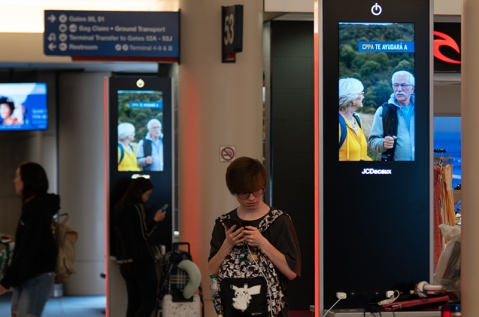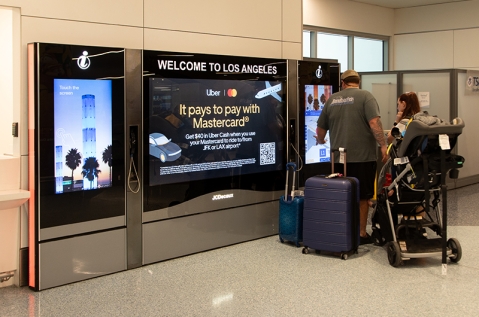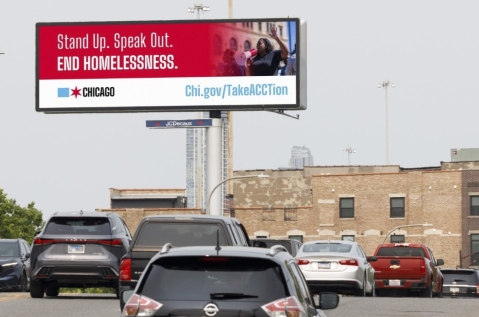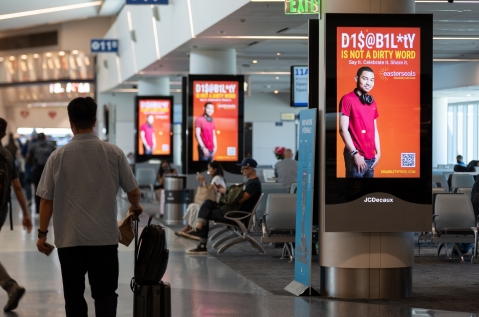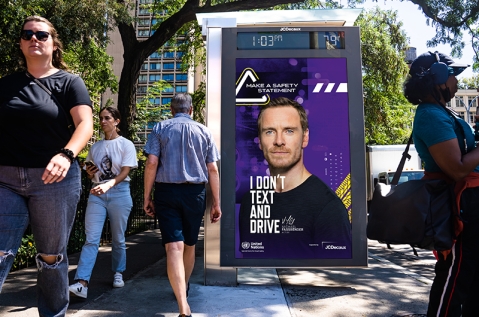eNHANCING dAILY LIFE in cities and airports:
We're dedicated to improving the way people experience both urban environments and travel hubs. Through street furniture and public services, we provide solutions that combine function and innovation to make city streets more connected and accessible, while our airport networks deliver information, amenities, and communication platforms that serve millions of passengers each year.
Serving Communities
Functionality, Innovation and Mobility: Improving quality of life for individuals
JCDecaux solutions are designed to enhance accessibility while creating cleaner, more sustainable urban environments that combat the effects of climate change.
We help cities and airports run more efficiently with bus shelters, shade structures, newsstands, ADA-compliant self-cleaning public toilets, airport charging stations, and IoT-enabled information panels.
Public Messaging Network
DELIVERING PUBLIC MESSAGES,
when and where they matter.
Our networks deliver timely and impactful communication through a range of platforms. Digital screens in shelters and kiosks provide real-time updates and emergency alerts, while airport and transit networks amplify city and community messages to millions of travelers each day. These networks also support nonprofit and government partners by offering dedicated space for public service campaigns that inform, engage, and connect communities.
Cultural Enrichment
Original Art Installations: Brought to life via JCDecaux street furniture globally.
JCDecaux partners with multiple art organizations to turn public spaces into open-air galleries. This reflects our belief that art should be accessible to all and seamlessly integrated into everyday urban life.
Jean-Francois Decaux“Providing artistic voices on city streets is an important avenue through which JCDecaux supports sustainable development in cities.”
Global Co‑Chief Executive Officer
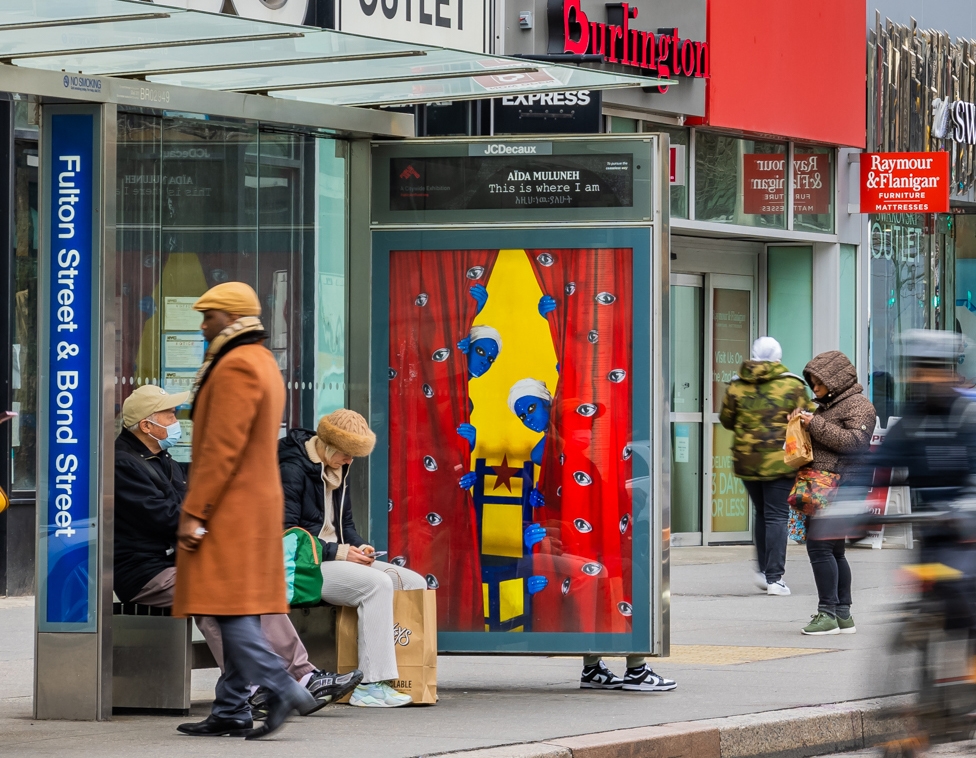
Public Art Fund, Adrienne Elise Tarver: She who sits, NYC Bus Shelter
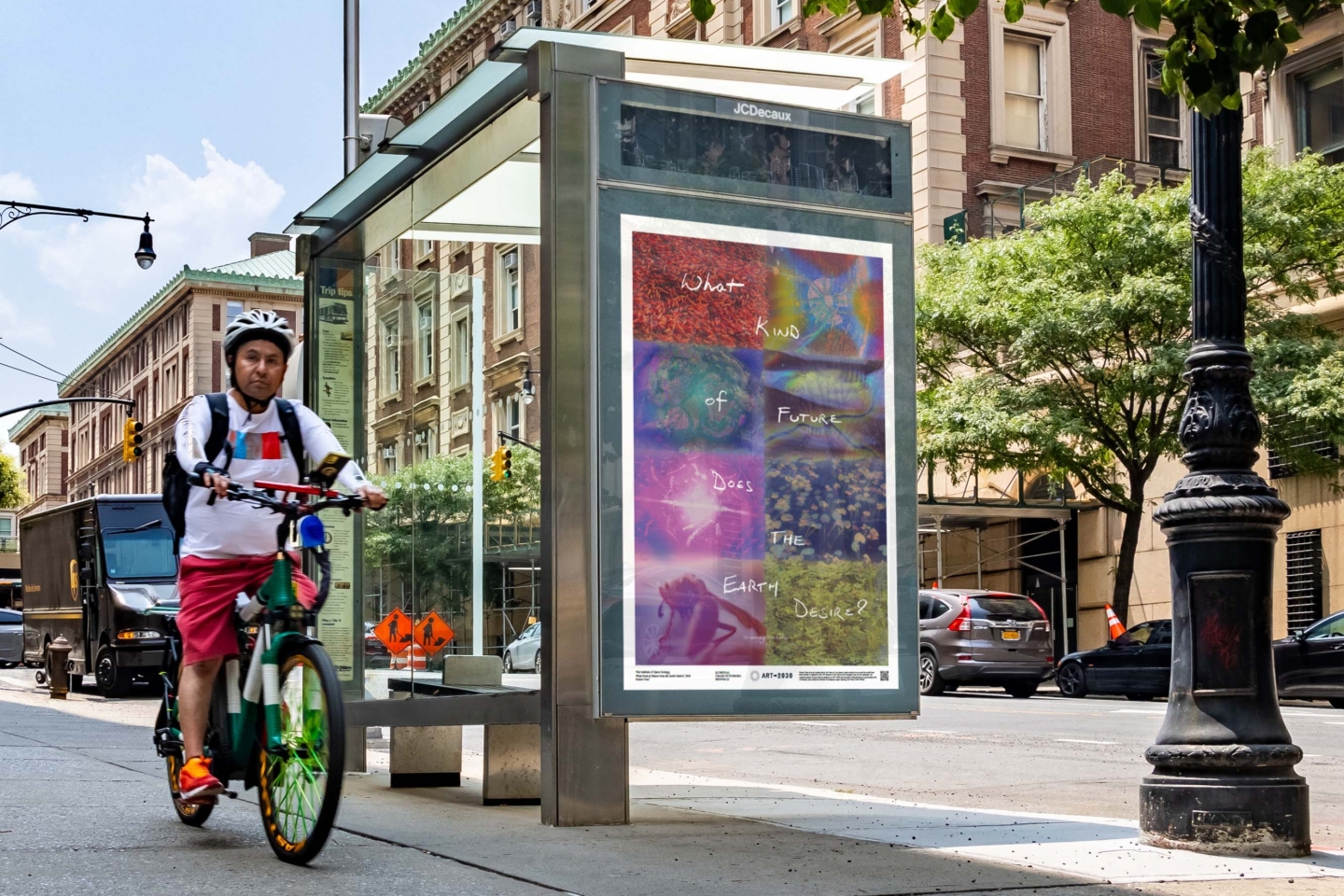
Art 2030: FUTURE OURS, NYC Bus Shelter
Through our cultural enrichment initiatives, we have partnered with the Public Art Fund since 2017 to transform thousands of bus shelters into public exhibitions, collaborated with Art 2030 to highlight the UN Sustainable Development Goals through public storytelling, and supported local artists by offering rent-free retail kiosks in cities such as San Francisco to showcase their work.
Partner Case Studies
San Francisco Program
The program recorded four million toilet uses over five years, including 810,000 in 2024—surpassing the city’s population. The infrastructure includes 25 public toilets that exceed ADA standards, supported by full-time operations and staffed by local union labor including a bathroom attendant, managed by nonprofit organizations and funded by JCDecaux.
Additionally, our 17 ft tall kiosks incorporate wayfinding features, small cell/5G technology, and artist-run retail spaces.
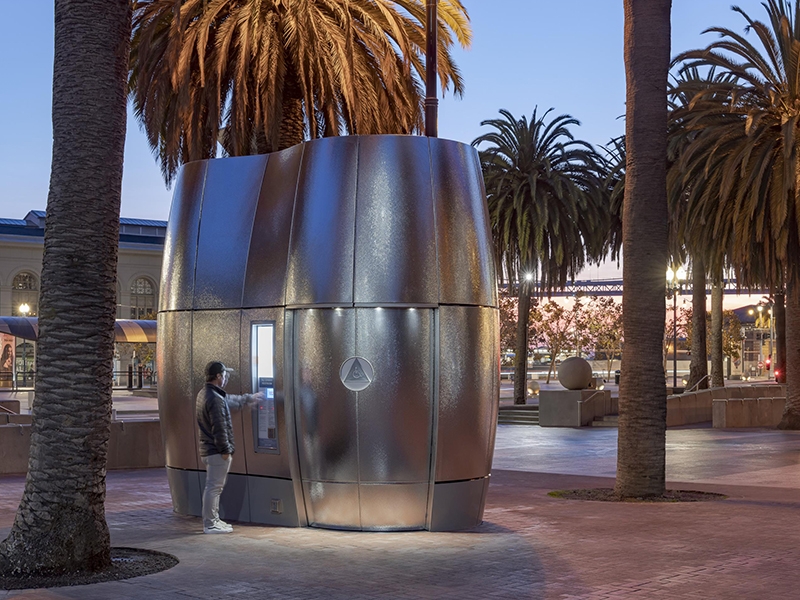 San Francisco Automatic Public Toilet
San Francisco Automatic Public Toilet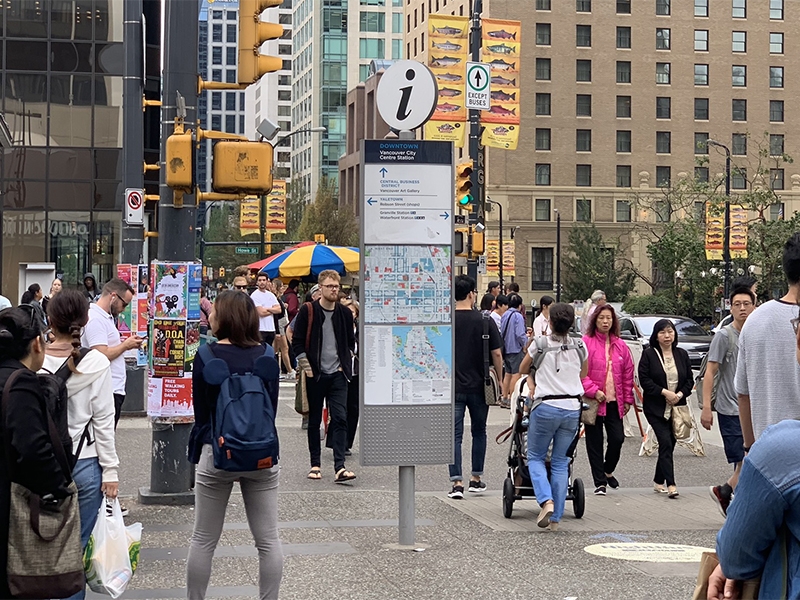 Vancouver Wayfinding
Vancouver WayfindingVancouver Program
This turnkey, citywide initiative encompasses 900 bus shelters, 11 public toilets, 1,900 benches and recycling bins, 217 wayfinding systems, and 40 digital screens for PSAs and commercial advertising.
The program operates under a JCDecaux–Bell Media joint venture, which finances all services. These assets are deployed across parks and port areas, with year-round local operations. Shelters and digital displays are also leveraged for real-time city communications.
West Hollywood (Los Angeles)
The citywide smart furniture system includes 55 smart shelters with Wi-Fi, USB ports, and real-time information displays, along with nine digital kiosks, 20 Wi-Fi-enabled totems, and 50 solar-powered trash bins.
Digital screens are also integrated throughout the network for public service announcements and commercial advertising, with nine reserved exclusively for city messaging. Select locations feature fiber-enabled connectivity for enhanced performance.
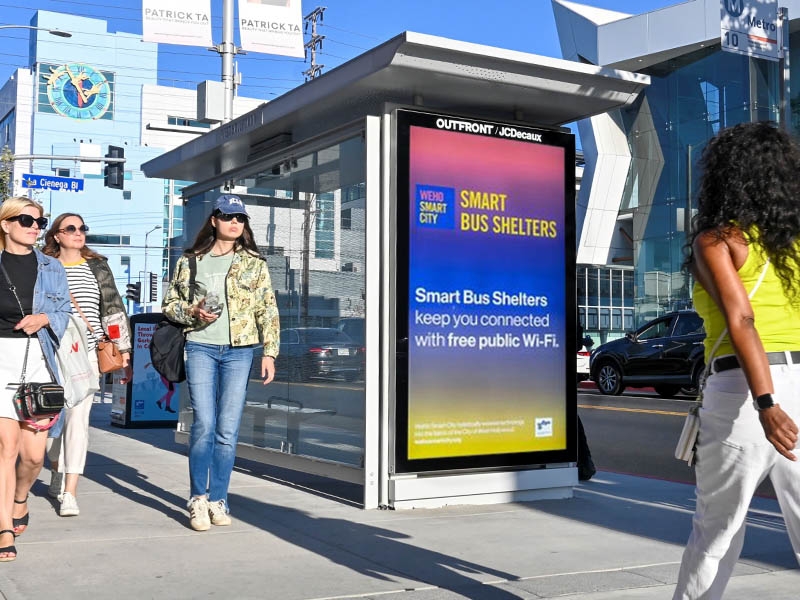 West Hollywood Bus Shelter
West Hollywood Bus Shelter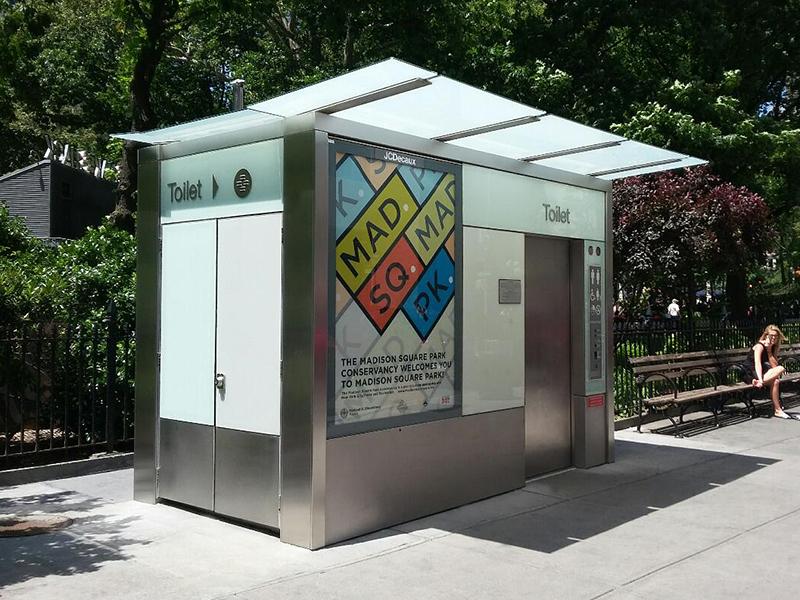 NYC Automatic Public Toilet
NYC Automatic Public ToiletNew York City
Our most extensive street furniture program in the country, JCDecaux's NYC program is comprised of more than 4,000 bus shelters and newsstands including both digital screens and static panels that cover all five boroughs.
Our program also includes automatic public toilets (APTs) as well as community outreach to support local causes and public art through dedicated media space across the city. We are also committed to amplifying NYC tourism messaging on a global scale with JCDecaux advertising networks overseas.
Boston
This program includes over 430 products throughout the city, including bus shelters, city information panels, automatic public toilets and pillars.
Digital technology is incorporated on over 50 panels, providing the City with valuable public service messaging. This program also incorporates the country’s largest green roof installation on bus shelters, promoting biodiversity and increasing storm water retention.
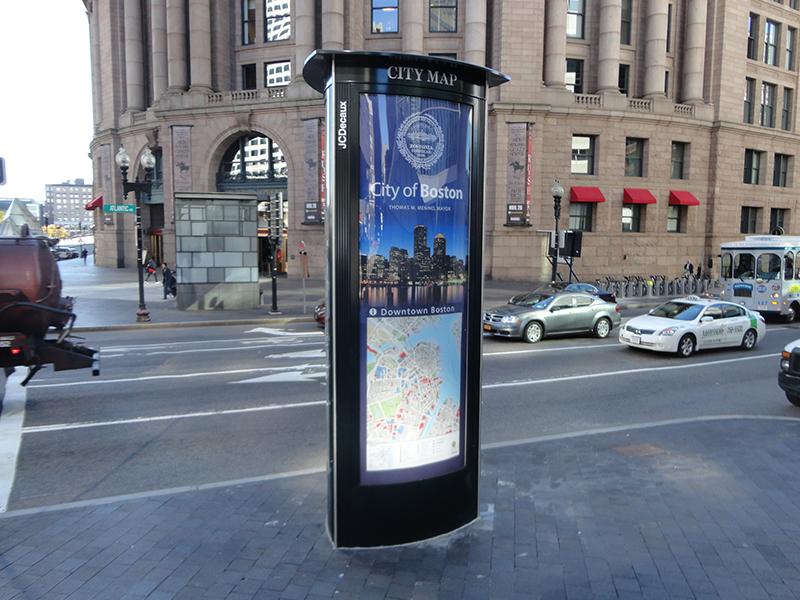 Boston Kiosk Information Panel
Boston Kiosk Information Panel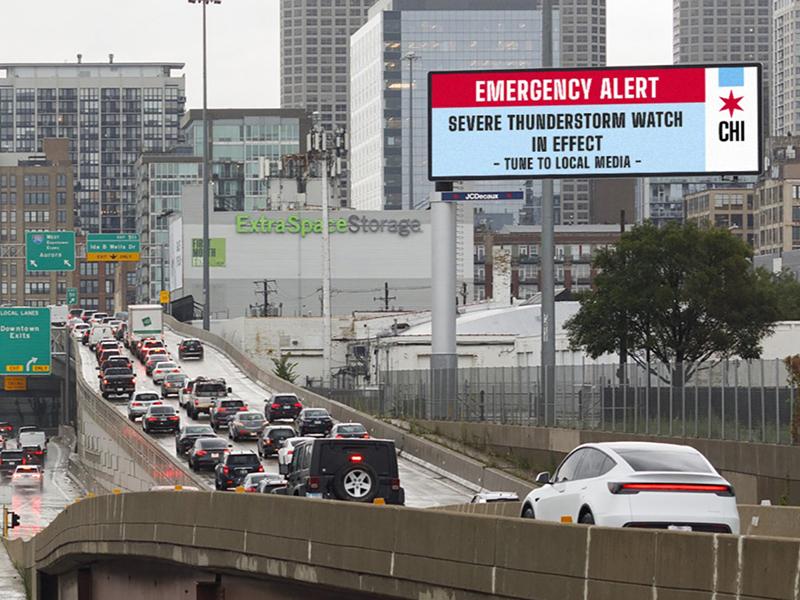 Chicago Digital Billboard
Chicago Digital BillboardChicago
With our two programs in Chicago, JCDecaux has installed 2,000+ bus shelters, 80+ city information panels and 50+ large-format digital billboard displays.
These advertising programs include dedicated city messaging space on all digital screens, real-time bus arrival information on 300+ bus shelters, digital wayfinding on all city information panels, and the ability for a full digital network takeover by the city during emergencies. In 2024, over 200 million city messages were activated across JCDecaux Chicago screens.
US Airports
Our extensive digital network reaches millions of travelers every year with 235 screens in Miami, 281 in Los Angeles (LAX), 139 in Houston (IAH), 134 in Orlando, 223 in Dallas (DFW), and 116 in Boston (BOS).
These high-visibility platforms support brand campaigns, public service announcements, and airport messaging in spaces with long dwell times and heavy passenger traffic. Beyond advertising, we collaborate with select airports to create custom lounges and immersive brand zones that elevate the traveler experience.
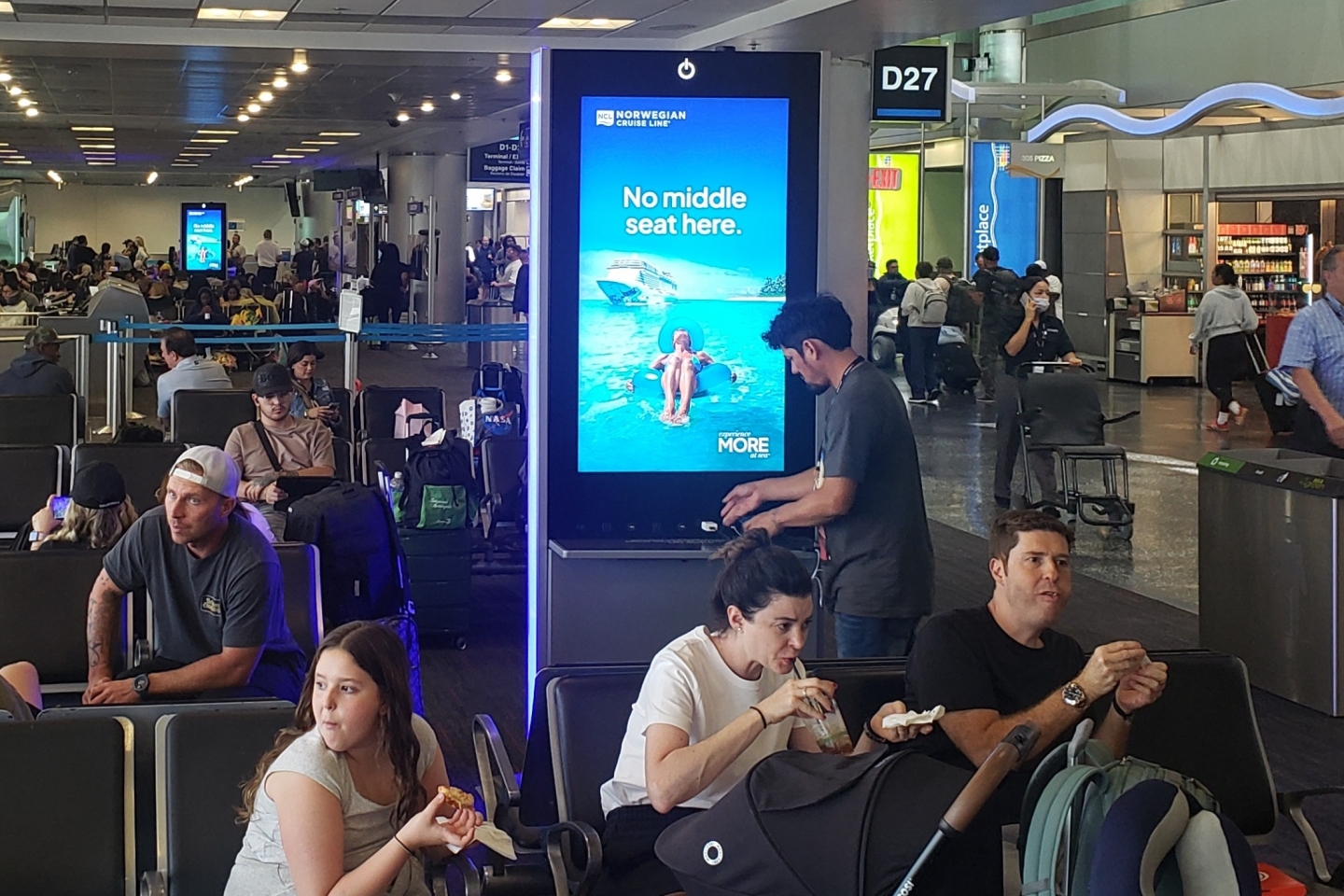 Airport Digital Charging Station
Airport Digital Charging Station